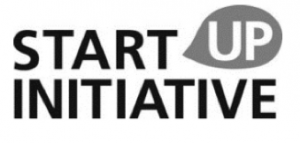Judgement of the General Court of 15 December 2016 in Case T-529/15 Intesa Sanpaolo SpA vs EUIPO.
EU trade mark application of the figurative mark START UP INITIATIVE. Absolute ground for refusal. Lack of distinctive character. Article 7(1)(b), of Regulation (EC) Nº 207/2009.
Intesa Sanpaolo SpA filed an application for registration of a European Union trade mark with EUIPO, for the following figurative sign:

The goods for which registration was sought, concerning this judgement, was for each of the following classes and services:
- Class 35: services relating to advertising, business management and business consulting.
- Class 36: financing, valuation, real estate, insurance and investment services.
- Class 41: services relating to training and education, as well as sporting and cultural activities.
- Class 42: Scientific and technological services, industrial analysis and research services, design and development of computer hardware and software.
EUIPO refused the registration based on Article 7(1)(b) and (c) of Regulation Nº 207/2009, for which reason the applicant, Intesa Sanpaolo SpA, appealed to the General Court, who dismissed the appeal for the following reason:
“Article 7 Absolute grounds for refusal:
- marks that are not to be registered:
- b) trade marks which are devoid of any distinctive character”.
The applicant claimed to consider that the non-English speaking public would understand the expression “start up initiative”, whereas, actually, outside the English speaking countries the consumer would really not be able to understand the meaning of the mentioned expression and would perceive the requested mark as a sign composed of entirely fanciful wording.
The applicant maintains that the requested mark is not devoid of distinctive character in terms of the services covered by the trade mark application, since what is involved is a compound trade mark, made up of a combination of word and figurative elements which endow it with distinctive character. He/She considers that the trade mark applied for appears as a fancy logo made up of the image of the two words “start” and “initiative”, arranged in two lines and “aligned to the right”. This image is accompanied by a comic speech bubble, resembling a stylish mouth pronouncing the word “up”. It was added that the originality of this choice was to associate the speech bubble with the word “start” and “initiative” instead of reproducing a figure, evidence of the highly distinctive character of the requested mark. In his/her judgement, the mark will thus remain in the mind of the consumer and fulfils its function of indicating the services provided.
The Court dismisses this reason as unfounded and, as a consequence, the appeal in its entirety. The Court understands that the speech bubble is shown as a mere figurative element, does not follow most commonly used technology in comics to visually represent a word, as there is not the slightest character or figure shown in the mark applied for. Therefore, the public will not necessarily perceive the shape surrounding the word “up” as a comic speech bubble, but rather as an extremely simple frame that, as such, is unable to transmit a message for consumers to recall.
The Court points out that a word element is descriptive and devoid of all distinctive character if, in at least one of its possible meanings, it designates a characteristic of the goods or services concerned. This is the case if, on one side, the link established between the wording of the mentioned element and, on the other side, the goods and services concerned are sufficiently concrete and direct in order to demonstrate that that this element enables the relevant public to identify those services immediately. In short, it concludes that as the relevant public will retain the requested mark mainly thanks to the expression “start up initiative”, it is necessary to confirm the Board of Appeal’s assessment regarding the lack of distinctive character of the requested mark in relation to the different services covered by this.


 Español
Español Deutsch
Deutsch